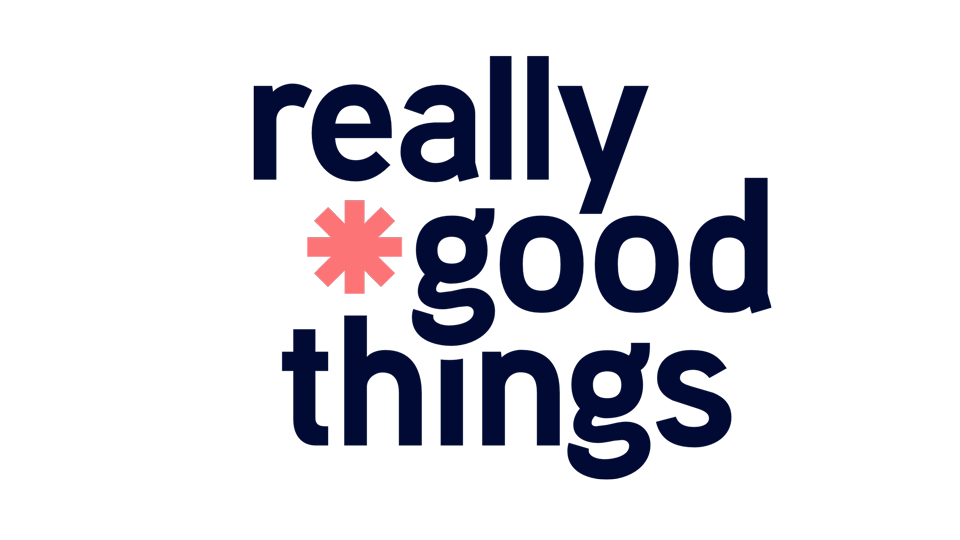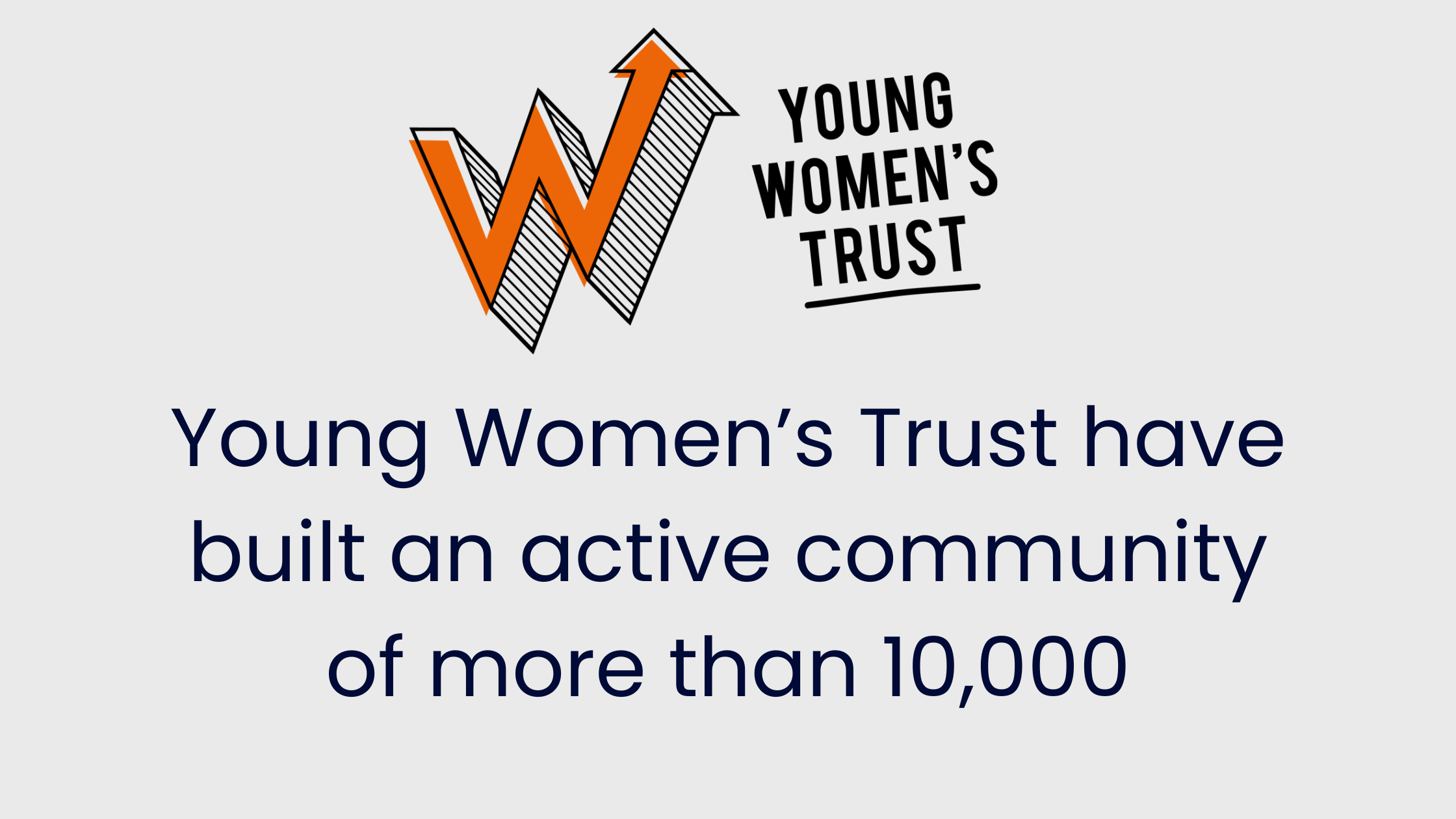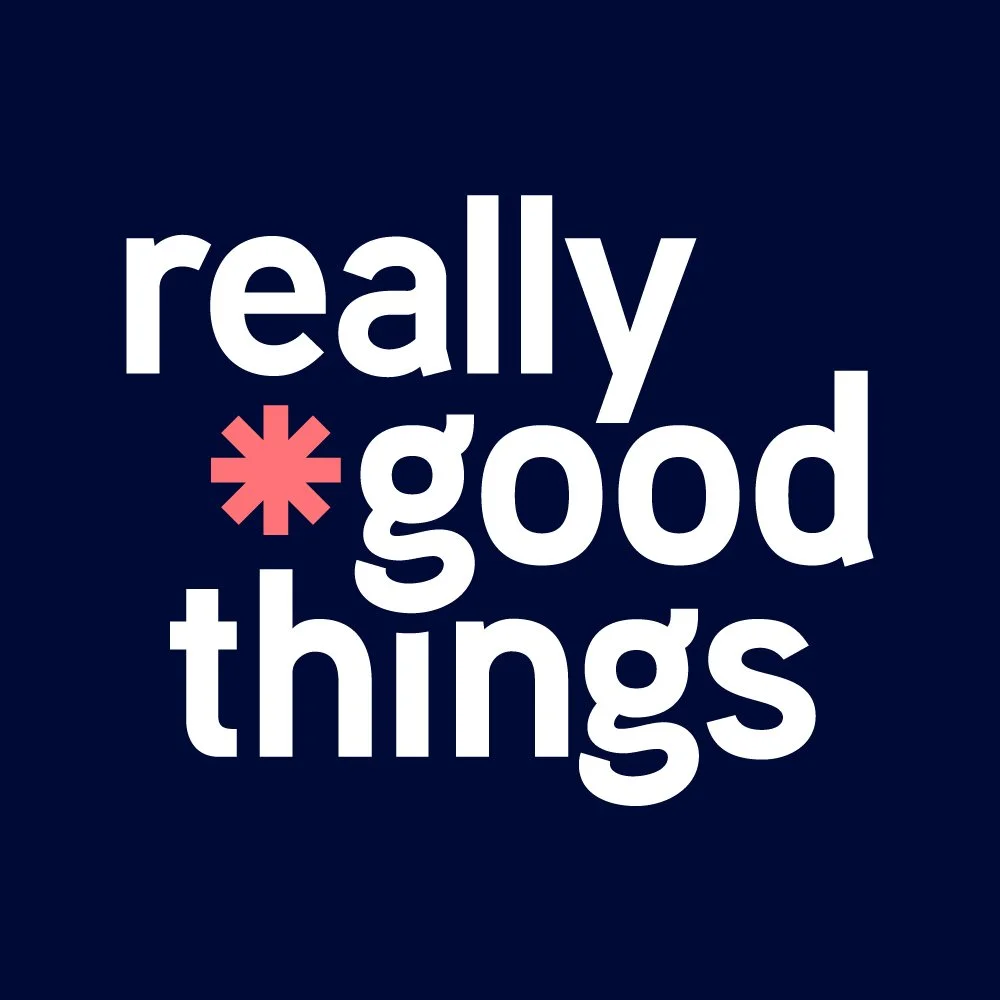REALLY GOOD THOUGHTS: How to mobilise a community for your cause
REALLY GOOD THOUGHTS is a new content series, focused on sharing powerful insights to help our audiences learn from each other and do more good.
In this latest blog, we hear from Young Women’s Trust.
Young Women’s Trust is a national charity that champions young women aged 18 – 30 on low or no pay, and exist to create a more equal world of work, raise young women’s incomes, and tackle sexism and misogyny.
One of the many ways they achieve this is through building an active community of more than 10,000 young women, and people of marginalised genders, and giving them opportunities to have their say.
We talked to Kate Nightingale, Director of Communications, Campaigns and Research about the things Young Women’s Trust have learnt while succesfully building and mobilising a community.
We asked Kate…
What are the main ways you put young women at the centre of the charity’s work? How do they inform and guide your work?
“Young women are involved at lots of different levels. In our campaigning, we’ve worked with young women campaigners over the last two years to look at the evidence about what’s causing income inequality, decide on the priorities to campaign on, and create their own Manifesto for an Equal World of Work.
We’re now launching a campaign on rights at work, and are recruiting a new group who have lived experience of insecure work or discrimination, to run the campaign with us – everything from developing messaging to speaking to the media and MPs.
Our research guides everything we do, and peer researchers are crucial to that – young women who we train up to carry out research with other young women. So young women are part of the full cycle of our work from gathering evidence, to designing policy solutions, to taking those solutions out to policymakers.”
2. What would be your single biggest piece of guidance to other charities that want to mobilise a community to inform their work, or advocate for their cause?
“We’re still on a learning curve. We have thousands of young women who have benefited from our services and are really enthused about Young Women’s Trust - we provide free coaching, job application/CV feedback, webinars, and group programmes to help young women build networks and self-belief.
We’re trying to get better at giving those women opportunities to get involved in other things too – for example offering them the chance to campaign with us. That takes collaboration across teams, focus on the audience and what they need rather than internal structures, and a good digital infrastructure. We’ve been working on all of those areas.
Also look at who is already warm to you, and how you can mobilise them, as well as reaching out to new audiences.”
3. What’s your personal highlight of your work to give young women opportunities to have their voices heard? What could other charities learn from this?
“The general election campaign! We’d started thinking about the election but like pretty much everyone else, we thought we’d have months to plan it. Luckily when the snap election was called we had our group of campaigners already formed, and they’d created our manifesto – so we knew what we were asking for. We put the power in young women’s hands to decide what the focus should be, and they felt it was important to break down the fear some young women have about not knowing enough about politics or it not being their place to vote. The campaigners created lots of the content we put out using different creative ways to speak to other young women about this, and I loved seeing their talent and intelligence out in the world - and the pride they felt in that too.”
4. What should people know about why your work is so vital?
“One thing we’re always trying to get across is that the income gap between women and men is there right from the start of working life. Young women earn, on average, around £4,000 less than young men per year!
We’re trying to tackle the widespread and rising discrimination which young women face in the workplace – 53% in our 2024 annual survey had faced this, up from 42% in 2022. For racially minoritised young women this is even higher at 61%.
Young Women’s Trust is making a difference to young women’s ability to challenge this. We’ve found that 84% of young women who’ve been involved with us feel confident to challenge discrimination compared with just 71% of young women on average.”
With thanks to Kate Nightingale.
You can find out about the work and campaigns of Young Women’s Trust here.
Really Good Things is a specialist impact and communications consultancy.
For 20+ years, we’ve been working with charities, responsible businesses, and the innovation sector, to tackle some of the most complex social and environmental challenges we face today.
Our clients create bold positive change. We help by delivering the powerful insights, strategy, and communications they need to make it happen.





